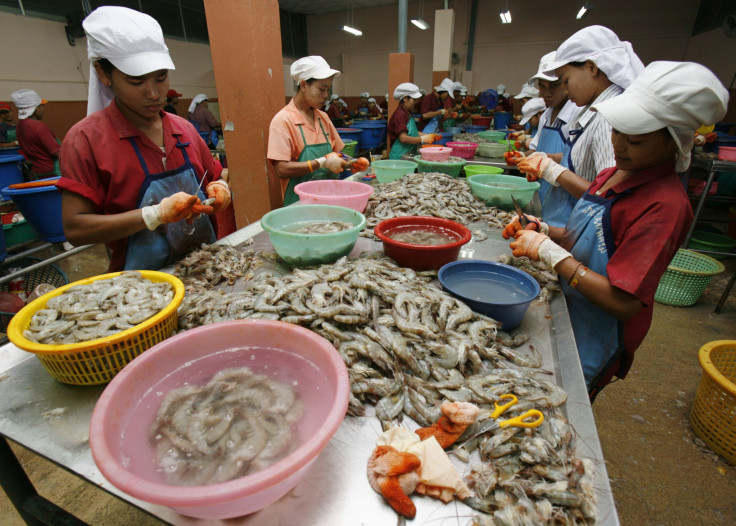Shrimp Slaves Boycott: Thailand Slave Labor Controversy Sparks Call For Ban On Seafood Imports

Politicians in the United States and international human rights organizations called this week for a boycott of seafood imports from Thailand after the largest shrimp producer acknowledged that some of its product could be derived from slave labor. Politicians and activists were reacting to an investigative report released Monday by the Associated Press, which found that some producers in Thailand’s $7 billion shrimp industry forced migrant laborers to work 16-hour days with little or no wages.
Thai shrimp can be found in products sold by major retailers in the U.S., Europe and Asia, according to the AP. The laborers, including some who had been tricked or sold into shrimp peeling factories without the freedom to leave, have endured modern-day slavery for years at a time.
"All of us may find ourselves eating a slave-made product without knowing it, but once we know it, we all have a moral obligation, I believe, to make a personal decision to boycott it," U.S. Rep. Chris Smith, a Republican from New Jersey and member of the House foreign relations committee, told BBC News. Smith was among those calling for a boycott of Thai seafood producers.
Thai Union, one of the largest shrimp producers in the world, admitted to the AP that it was unaware of where all of its shrimp came from and called the findings of the investigation a “wake-up call.” Thai Union leaders said they planned to change employment practices, beginning in 2016, with reforms that include using less migrant laborers to process seafood. Internal labor has been “a positive step towards our goal of ridding the Thai seafood sector of illegal labor practices," said Thiraphong Chansiri, chief executive of Thai Union, according to the BBC News report.
Greenpeace, the international human rights organization, in July called for a boycott of Thai Union after another AP investigation reveal abuses at the company’s Indonesian seafood processing plants. Global food giant Nestlé said last month that it had determined slave labor was used on fish it bought from Thai producers and hatched a plan to address the issue.
© Copyright IBTimes 2024. All rights reserved.






















